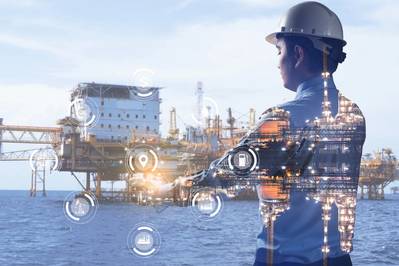The Fundamentals of AI in Oil and Gas
The oil and gas industry has cutting-edge technology when it comes to the processes of drilling for oil, but when it comes to invoicing and scheduling crews and equipment, the technology is rather basic. On top of the antiquated technology for administration work, the oil and gas industry faces challenges of working in unconnected environments and complex pricing of their products and services.
When taking into consideration these challenges, artificial intelligence (AI) innovation is not the first thought for the oil and gas industry. Even though AI is not generally seen in this market, the industry is eager to implement the kind of technology needed to help companies lower costs while boosting efficiency. A Markets and Markets report estimates the value of AI in the oil and gas industry will reach $2.85 billion by 2022. In aspects of planning and forecasting to surveying and facility management, AI has the potential to enhance the oil and gas field in ways that haven’t been experienced yet.
There is a preconceived notion for consumers that AI refers to actual robots or autonomous systems that are capable of making decisions on its own. Due to these notions, business leaders and marketing teams are cautious to talk about their AI products. In reality, AI is slightly easier to understand. AI is useful in making predictions and analyzing algorithms as well as implementing processes that allow the implementation of those algorithms.
AI is really synonymous with one thing: data. Most oil and gas companies have an abundance of data through the machines and their sensors, however, they aren’t using that data efficiently to help them with things like planning. In addition to lots of data, the more historical data collected means the more accurate predictions about future practices could be utilized, especially if they are implemented into AI software. AI algorithms can use this data and become so sophisticated to where they can train themselves for the highest possible accuracy when guessing the best value.
When looking specifically at the oil and gas industry, there are some practical ways AI can be implemented and why it is needed.
Quoting modules - The oil and gas industry uses quoting for most businesses, but doing all the quoting by hand can lead to human error and revenue leakage. To avoid this, AI has to ability to easily access that data so that every pricing objective is up to date and accurate. The data can refer to anything from historical win rates to the history of quotes and automatic pricing impacts to quotes such as higher prices for dangerous environments.
Asset management modules - AI programs have the ability to predict things like equipment failure. As crazy as it sounds, it is a positive, invaluable impact for a company. Using the data collected over time to look at averages and curves allows the software to predict if and when the failure is likely to happen. This allows teams to be proactive with the projects and equipment, making sure to intervene before the failure happens which ultimately saves time, resources, reputation, and most importantly, keeps everyone safe.
Scheduling - When scheduling out personnel and equipment, whiteboards and paper calendars are the ways of the past. Using paper-based operations is an inefficient way of managing crews and the resources they need. Instead, utilizing data over time takes into consideration the work patterns and job locations so that companies can auto-schedule the appropriate equipment and people to the right jobs.
There different uses and implementations of AI applications and field service softwares are just getting started, but there are still so many different utilizations that haven’t been discovered yet. Industry leaders have the budgets and the talent available for successful implementation of the AI applications, and the ones that are heading the AI initiative are reaping many benefits already. As AI develops more, the oil and gas industry needs to take advantage of the expansion as AI could potentially lead to the next productivity revolution.
The Author
Travis Parigi is the Founder and Chief Executive Officer at LiquidFrameworks. Travis focuses on growing LiquidFrameworks’s software platform and evangelizing its benefits to customers. He plays an active role in the technology, architecture and overall product vision of the company. Prior to LiquidFrameworks, Travis was a founding member and served as a Senior Engagement Manager for Emerging, Inc., an e-Business professional services firm funded by Austin Ventures and Benchmark Capital with offices across the US.









